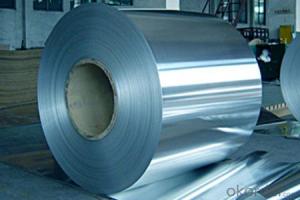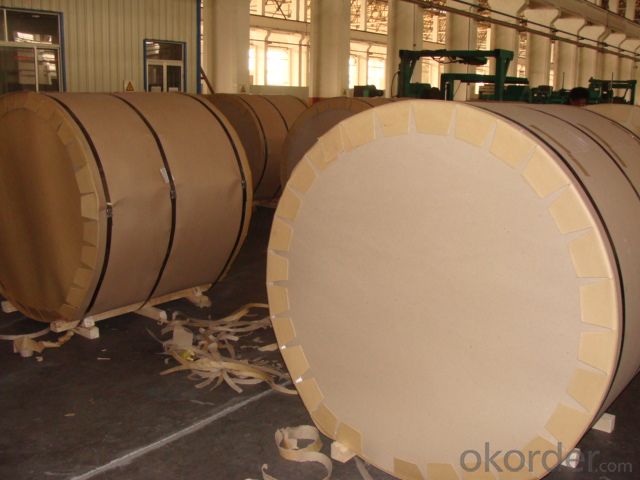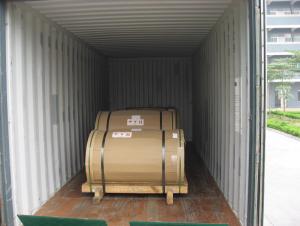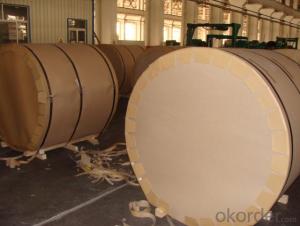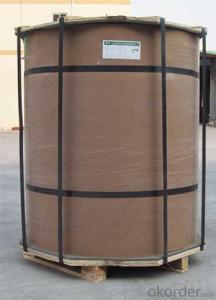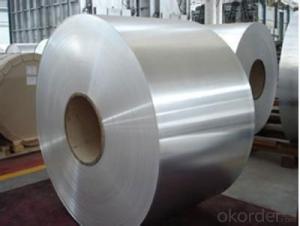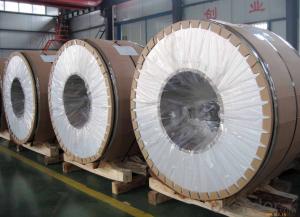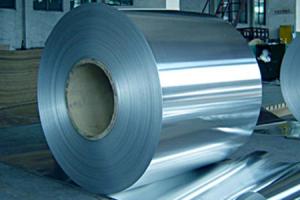Aluminum Zinc Alloy Steel Coil - AA1XXX Aluminum Coils Mill-Finished for Construction
- Loading Port:
- Shanghai
- Payment Terms:
- TT OR LC
- Min Order Qty:
- 3 m.t.
- Supply Capability:
- 10000 m.t./month
OKorder Service Pledge
OKorder Financial Service
You Might Also Like
Specification
1.Structure of AA1xxx Aluminum Coils Mill-Finished Used for Construction Description
AA1xxx Aluminum Coils Mill-Finished Used for Construction is one semi-finished aluminium material. This strip can be rolled down to aluminium foil.The final thickess can be 5-20 microns. Aluminium foil is soft, ductile and with a silver-white luster which can be widely used in a large scare of fields.
2.Main Features of AA1xxx Aluminum Coils Mill-Finished Used for Construction
1)excellent quality,good credit
2)competitive price,comfortable service
3)Samples for free
4)fast delivery,small order accepted
5)Good rust resistance
6)clean, flat, no wrinkle, no scratch, oil free.
3.AA1xxx Aluminum Coils Mill-Finished Used for Construction Images
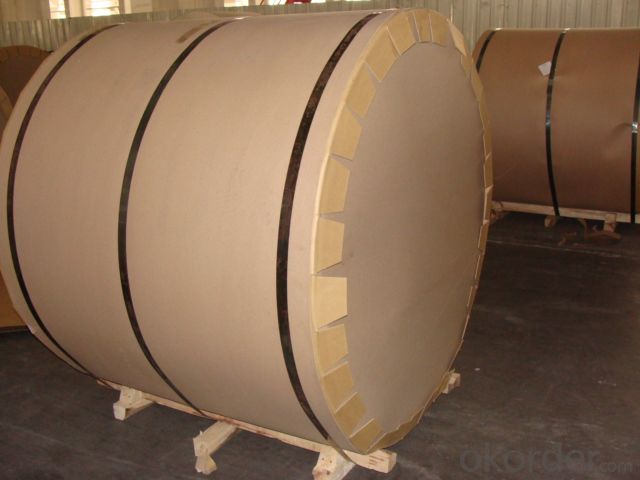
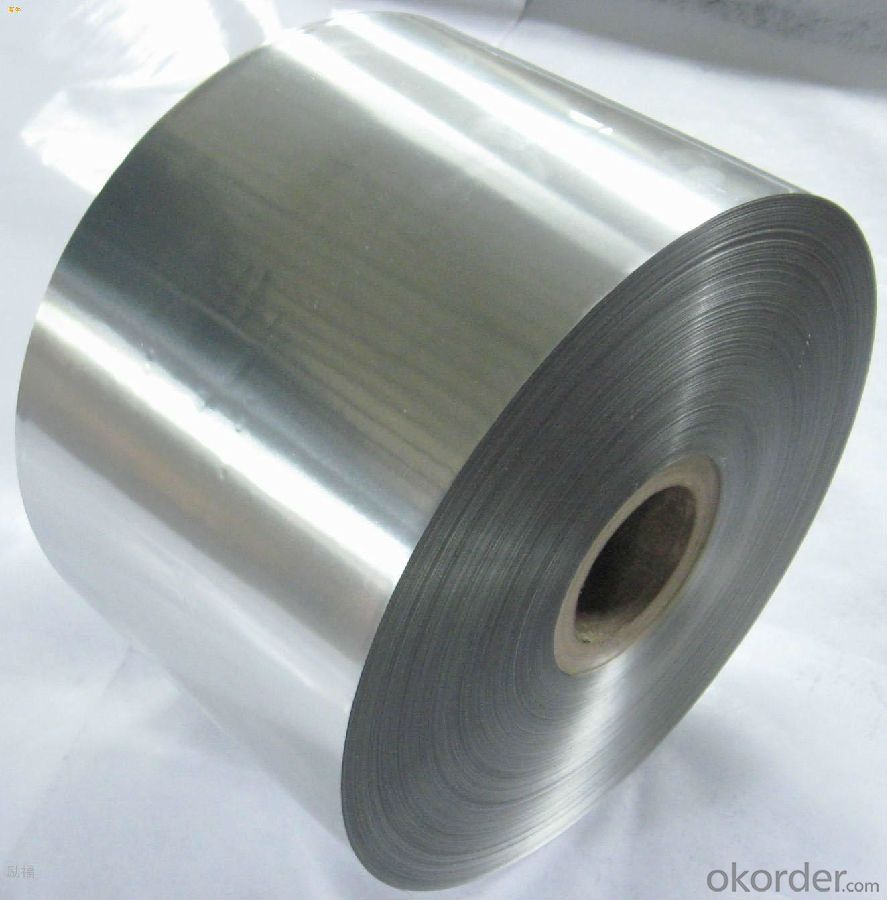
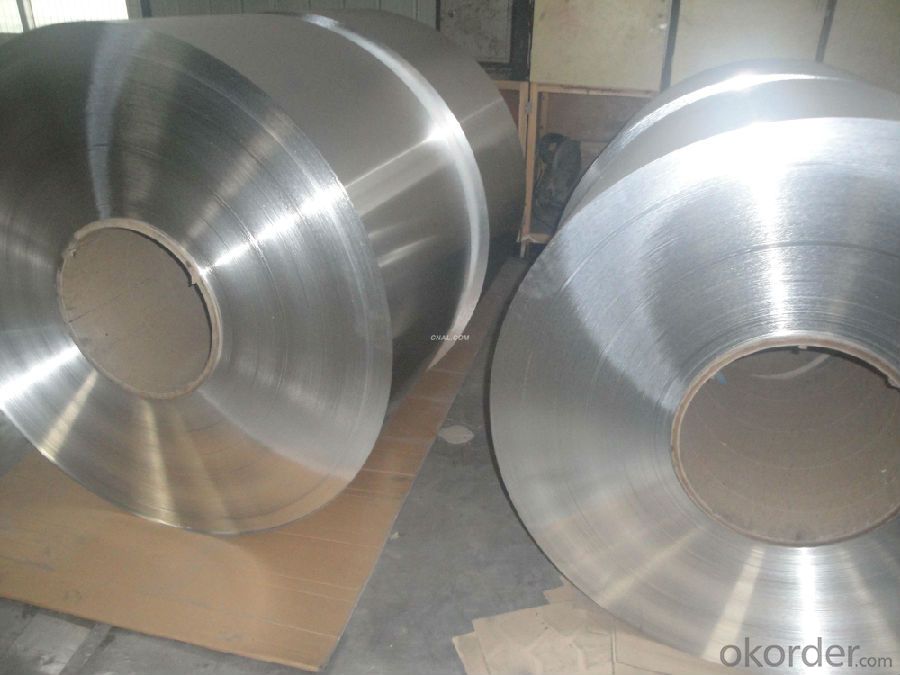
4.AA1xxx Aluminum Coils Mill-Finished Used for Construction Specification
Alloy | AA1xxx (AA1050, AA1060, AA1070, AA1100 etc. |
Temper | H14, H16, H18, H22, H24, H26, H32, O/F |
Thickness | 0.2mm -- 100mm |
Width | 30mm -- 1700mm |
Standard | GB/T 3880-2006,EN,ASTM,JIS |
5. FAQ of AA1xxx Aluminum Coils Mill-Finished Used for Construction
What is the quality standard?
---Usually our standard is GB3880-2006
What is the largest width?
---It is 2300mm
What is the MOQ?
---Usually we can accept 80 tons.
- Q: Is it possible to utilize aluminum coils in the construction industry as building materials?
- <p>Yes, aluminum coils can be used for building materials. They are valued for their lightweight, corrosion resistance, and strength. Aluminum coils are commonly used in roofing, siding, window frames, and facades due to their durability and low maintenance requirements. Additionally, they can be easily shaped and recycled, making them an environmentally friendly option in construction.</p>
- Q: How are aluminum coils used in the production of transportation vehicles?
- Aluminum coils play a crucial role in the production of transportation vehicles, especially automobiles and aircraft. These coils are typically made from high-quality aluminum alloys due to their lightweight nature, excellent strength-to-weight ratio, and corrosion resistance characteristics. In automobile manufacturing, aluminum coils are primarily used in the construction of vehicle bodies, including the frame, doors, hoods, and trunk lids. The lightweight nature of aluminum allows for reduced fuel consumption and improved overall energy efficiency, making it a preferred choice for vehicle manufacturers aiming to meet stringent environmental regulations and enhance fuel economy. Aluminum coils are also utilized in the production of aircraft, where weight reduction is of utmost importance to ensure optimum flight performance. By incorporating aluminum coils in key components such as fuselages, wings, and engine parts, aircraft manufacturers can achieve significant weight savings while maintaining structural integrity and durability. The use of aluminum coils in transportation vehicles also contributes to improved safety standards. Aluminum's exceptional crash energy absorption capabilities make it an ideal material for manufacturing impact-absorbing structures, such as bumpers and crash boxes in automobiles, providing enhanced protection to passengers during collisions. Furthermore, aluminum coils offer excellent heat dissipation properties, reducing the risk of overheating in engines and other critical vehicle systems. This thermal management capability is particularly beneficial in high-performance vehicles, where efficient cooling is paramount to maintain optimal operating conditions. In summary, aluminum coils are extensively used in the production of transportation vehicles to leverage their lightweight, strong, corrosion-resistant, and thermally conductive properties. By incorporating aluminum coils in vehicle manufacturing, automobile and aircraft industries can achieve weight reduction, improved fuel efficiency, enhanced safety, and superior performance, thereby meeting evolving market demands and sustainability goals.
- Q: Is it possible to create baskets or containers using aluminum coils?
- <p>Yes, aluminum coils can be used to make baskets or containers. Aluminum is a lightweight, durable, and malleable material that can be easily shaped and bent into various forms. It is commonly used in manufacturing due to its strength and resistance to corrosion. For baskets or containers, aluminum coils can be woven or molded into the desired shape, offering both functionality and aesthetic appeal. However, it's important to consider the thickness and gauge of the aluminum to ensure the structure's stability and durability for its intended use.</p>
- Q: What are the differences between aluminum coil 3003h24 and 3a21h14?
- The mechanical property references of rolled plate 3003 H24and 3A21 H14 are as follows: 3003 H24--Rm/MPa≧140-180;Rp0.2/MPa≧115;A(%)≧1-5(thickness 0.2mm-4.5mm)3A12 H14--Rm/MPa≧145-215;A(%)≧6
- Q: Explain how aluminum coils impact the manufacturing process.
- <p>Aluminum coils significantly affect the production process by offering versatility and efficiency. They are easily formed, cut, and shaped, which streamlines manufacturing. Their lightweight nature reduces the energy consumption in transportation and handling. Additionally, aluminum coils' corrosion resistance and durability reduce waste and the need for frequent replacements, enhancing sustainability. They also contribute to the production of various products, such as automotive parts, construction materials, and packaging, by providing a consistent and high-quality material.</p>
- Q: I have a school project due in a couple weeks and I need to make a life size sculpture of a camera. I don't want to make it solid because that would use a lot of clay and wouldn't evenly cook. Can I put something inside like aluminum foil?
- I assume so, since it can go in ovens when you cook. I'd just make sure its in a relatively smooth shape, like folded until it forms a rectangle, before putting it in the clay.
- Q: What is the typical fatigue strength of aluminum coils?
- The typical fatigue strength of aluminum coils can vary depending on various factors such as the alloy composition, heat treatment, manufacturing process, and the specific application. However, aluminum is generally known for its relatively low fatigue strength compared to other metals, such as steel. Aluminum coils typically exhibit a fatigue strength that ranges between 30% to 50% of their ultimate tensile strength (UTS). This means that the fatigue limit or endurance limit of aluminum coils is usually below half of their maximum strength. It is important to note that aluminum's fatigue strength can also be influenced by other factors, including the presence of surface defects, stress concentrations, and environmental conditions such as temperature and humidity. These factors can further reduce the fatigue strength of aluminum coils. Therefore, when designing and using aluminum coils in applications where fatigue is a concern, it is crucial to consider the specific alloy and processing conditions, as well as implementing appropriate design practices and maintenance procedures to mitigate the risk of fatigue failure.
- Q: How do aluminum coils perform in coastal areas with high salt content?
- Aluminum coils perform relatively well in coastal areas with high salt content due to their inherent corrosion resistance. Aluminum has a natural oxide layer that forms on its surface, providing a protective barrier against saltwater and preventing corrosion. This oxide layer is highly resistant to salt-induced corrosion, making aluminum coils suitable for coastal environments. However, it is important to note that saltwater can still have some corrosive effects on aluminum over time, especially in areas with constant exposure to salt spray and high humidity. To enhance the performance and longevity of aluminum coils in such coastal areas, additional protective measures can be taken, such as applying specialized coatings or utilizing alloys with higher corrosion resistance. Regular maintenance and cleaning of the coils are also essential to remove any salt deposits that may accumulate on the surface. This can be done by rinsing the coils with fresh water periodically to remove salt residue. Additionally, avoiding the use of abrasive cleaners or harsh chemicals is crucial to prevent any damage to the protective oxide layer. Overall, while aluminum coils offer good resistance to saltwater corrosion, proper care and maintenance are still necessary to ensure optimal performance and prolong their lifespan in coastal areas with high salt content.
- Q: Can aluminum coils be used in automotive manufacturing?
- Automotive manufacturing can indeed utilize aluminum coils. Aluminum, a versatile and lightweight substance, presents several advantages within the automotive sector. Frequently employed for fabricating components such as body panels, engine blocks, wheels, and heat exchangers, aluminum's incorporation in automotive manufacturing enhances fuel efficiency by reducing vehicle weight and subsequently minimizing energy consumption. Furthermore, aluminum boasts exceptional resistance to corrosion, rendering it appropriate for deployment in diverse weather conditions. In conclusion, the extensive benefits associated with the utilization of aluminum coils in automotive manufacturing have led to its widespread adoption by numerous car manufacturers.
- Q: Can aluminum coils be custom-made to specific requirements?
- Yes, aluminum coils can be custom-made to specific requirements.
Send your message to us
Aluminum Zinc Alloy Steel Coil - AA1XXX Aluminum Coils Mill-Finished for Construction
- Loading Port:
- Shanghai
- Payment Terms:
- TT OR LC
- Min Order Qty:
- 3 m.t.
- Supply Capability:
- 10000 m.t./month
OKorder Service Pledge
OKorder Financial Service
Similar products
Hot products
Hot Searches
Related keywords
